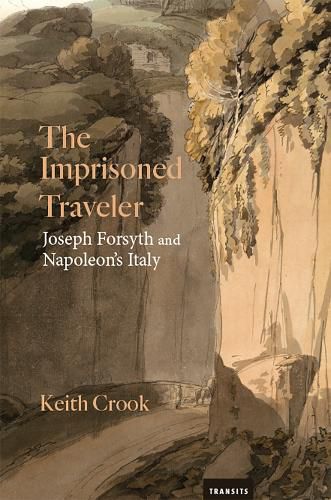Readings Newsletter
Become a Readings Member to make your shopping experience even easier.
Sign in or sign up for free!
You’re not far away from qualifying for FREE standard shipping within Australia
You’ve qualified for FREE standard shipping within Australia
The cart is loading…






The Imprisoned Traveler is a fascinating portrait of a unique book, its context, and its elusive author. Joseph Forsyth, traveling through an Italy plundered by Napoleon, was unjustly imprisoned in 1803 by the French as an enemy alien. Out of his arduous eleven-year ‘detention’ came his only book, Remarks on Antiquities, Arts, and Letters during an Excursion in Italy (1813). Written as an (unsuccessful) appeal for release, praised by Forsyth’s contemporaries for its originality and fine taste, it is now recognized as a classic of Romantic period travel writing. Keith Crook, in this authoritative study, evokes the peculiar miseries that Forsyth endured in French prisons, reveals the significance of Forsyth’s encounters with scientists, poets, scholars, and ordinary Italians, and analyzes his judgments on Italian artworks. He uncovers how Forsyth’s allusiveness functions as a method of covert protest against Napoleon and reproduces the hitherto unpublished correspondence between the imprisoned Forsyth and his brother.
$9.00 standard shipping within Australia
FREE standard shipping within Australia for orders over $100.00
Express & International shipping calculated at checkout
The Imprisoned Traveler is a fascinating portrait of a unique book, its context, and its elusive author. Joseph Forsyth, traveling through an Italy plundered by Napoleon, was unjustly imprisoned in 1803 by the French as an enemy alien. Out of his arduous eleven-year ‘detention’ came his only book, Remarks on Antiquities, Arts, and Letters during an Excursion in Italy (1813). Written as an (unsuccessful) appeal for release, praised by Forsyth’s contemporaries for its originality and fine taste, it is now recognized as a classic of Romantic period travel writing. Keith Crook, in this authoritative study, evokes the peculiar miseries that Forsyth endured in French prisons, reveals the significance of Forsyth’s encounters with scientists, poets, scholars, and ordinary Italians, and analyzes his judgments on Italian artworks. He uncovers how Forsyth’s allusiveness functions as a method of covert protest against Napoleon and reproduces the hitherto unpublished correspondence between the imprisoned Forsyth and his brother.